4 Best Beans for Runners: When and how you should eat them
Author:
Unlock your full potential by engaging with our experts and community! Have questions about your fitness journey or looking for expert advice on weightlifting techniques? Don’t hesitate — leave a comment below and Oleksandr Zagrebelnyi will provide a personalized answer and insights to help you reach your goals.
Torokhtiy is reader-supported. Some links are affiliate links, and we may earn a commission at no extra cost to you. See our disclosure page for details.
Are you tired of hitting the wall during your runs? If you are searching to supercharge your performance and bounce back faster, here’s a thought: beans for runners. These tiny powerhouses might hold the key to unlocking your running potential.
Say goodbye to energy crashes and sluggish recovery. In this blog, we’re diving into the game-changing benefits of energy beans for runners. Get ready to discover a natural, nutrient-packed solution that could transform your running experience.
Ready to leave fatigue in the dust? It’s time to ask yourself: are beans good for runners?
Are Beans Good for Runners? – Each type of bean is filled with nutrients like complex carbohydrates, proteins, fibers, and vitamins. Beans are also low GI, meaning they digest slowly, allowing the body to produce sufficient energy during the run. Thus making them one of the best foods for runners.
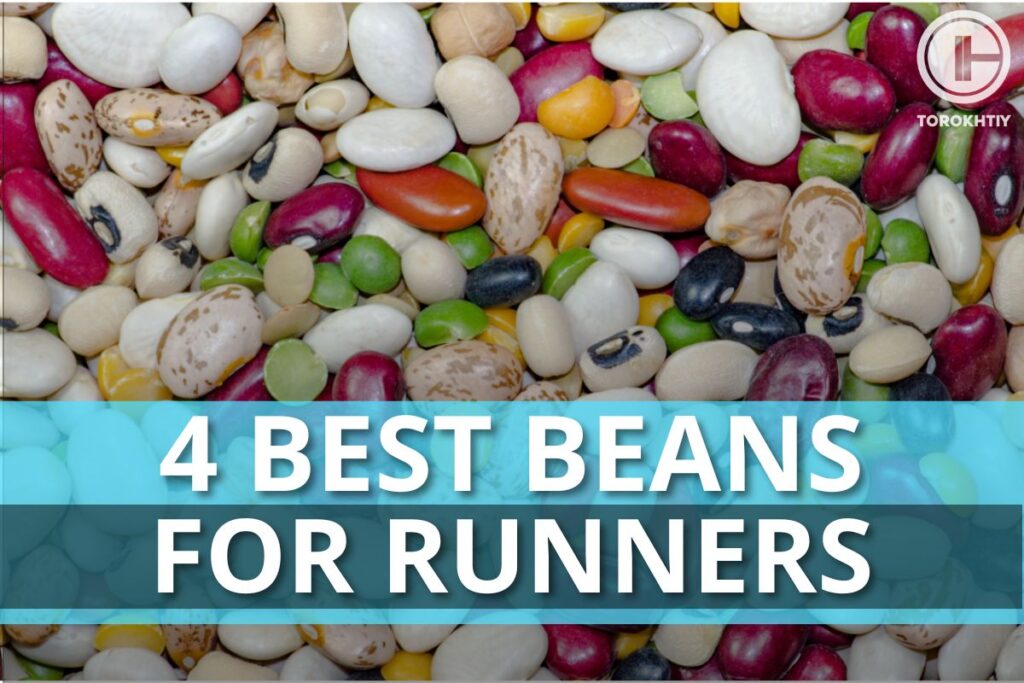
Are beans good before a run?
Eating beans as a pre-run snack can be beneficial for runners. They balance carbohydrates, protein, and fiber well, giving them sufficient energy during a run. Their nutrient-packed nature makes them one of the best foods for runners. However, before adding beans to your pre-run snack, knowing the composition of different bean types will help you make a smarter choice, ultimately enhancing your running experience. This will, in turn, benefit your running.
Some are higher in protein than others, while others are higher in dietary fiber. Notable energy beans for runners include Black Beans, Chickpeas, Kidney Beans, Lentils, and Navy Beans. Although all these beans offer pre-run benefits, it’s crucial to consider which one aligns best with your desired nutrients.
Beans serve as an excellent source of nutrients for vegetarians, and they also offer noteworthy benefits to runners following a vegetarian diet. In addition to incorporating beans into their diet, these individuals can consider other high-protein foods that provide the necessary energy to support their running routine.
Other high-protein foods that you can add to your nutrition:
- Quinoa: High-quality protein and a good source of carbohydrates.
- Chia Seeds: Provide omega-3 fatty acids, fiber, and protein.
- Nuts and Seeds: Offer healthy fats, protein, vitamins, and minerals.
- Leafy Greens: Rich in iron, calcium, and other essential nutrients.
- Whole Grains: Provide sustained energy and fiber for digestive health.
- Tofu and Tempeh: Plant-based protein sources for vegetarians and vegans.
3 Benefits of beans for runners
Beans have several benefits for runners. Whether you’re a seasoned athlete or just starting, let’s explore two advantages of including beans in your diet before a run.
✅ Beans Boost Energy
For runners, beans are an excellent energy booster with their potent nutrient mix. Packed with complex carbohydrates, they provide a steady release of glucose, sustaining your energy during long runs. The protein content helps repair muscles and replenish energy post-workout.
Fiber keeps you full, while B vitamins and iron convert food into lasting energy. Magnesium supports energy production and enzymatic reactions vital for peak performance. Plus, their low glycemic index prevents energy crashes. Including various beans in your diet can fuel your runs and keep you going strong!
✅ Aid in Muscle Recovery
Beans have a high protein composition. The protein in beans contains essential amino acids that help repair and strengthen muscles after running. It reduces muscle damage, promotes muscle recovery, and supports growth. Beans also provide energy during exercise and have anti-inflammatory properties that aid in muscle repair. Including beans in your post-run meals can enhance your muscle recovery and overall running performance.
✅ Beans Strengthen Your Bones
For runners, beans are a fantastic choice to strengthen bones and support overall bone health. They are packed with essential nutrients like calcium, magnesium, and phosphorus, crucial for building and maintaining strong bones.
Magnesium in beans helps absorb calcium and aids in bone formation. The phosphorus found in beans works alongside calcium to make bones strong and rigid. Protein, another nutrient in beans, plays a role in building and repairing bones.
Additionally, the fiber in beans helps regulate minerals like calcium and magnesium, benefiting bone health. Potassium in certain beans, such as kidney beans, neutralizes acids that can deplete bone calcium. Antioxidants in beans protect bone cells from damage caused by oxidative stress and inflammation.
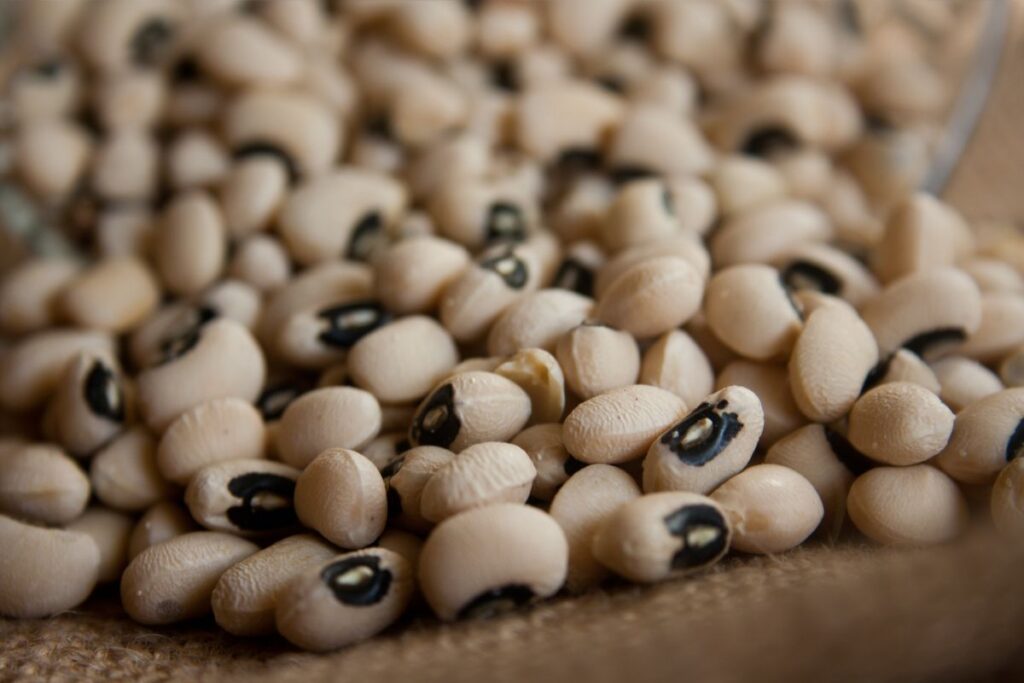
2 Disadvantages of beans for runners
While the advantages of eating beans are significant, there are some disadvantages. Some of these disadvantages deter runners from using beans altogether. Here are the disadvantages of eating beans for runners:
While they offer significant advantages, they do come with their share of disadvantages that can deter runners. Below, we highlight these drawbacks associated with consuming beans before a run:
❌ Digestive Discomfort
Beans are often linked with a common perception: their potential to cause gas in individuals due to the high fiber content in beans; some might feel bloating, resulting in digestive discomfort.
❌ Hinder Nutrient Absorption
While beans provide a rich source of vitamins and other beneficial compounds, they also contain phytates and antinutrients. These elements can hinder nutrient absorption, potentially resulting in a decreased uptake of essential nutrients from the beans.
Follow us!
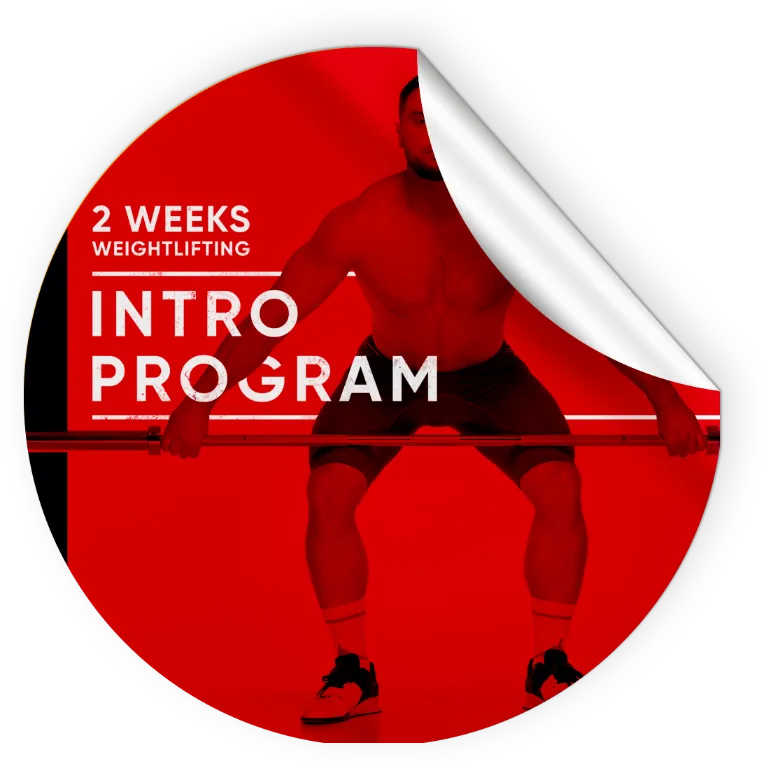
Free!
Get a 2-week Weightlifting Program as a bonus for the subscription to kickstart your training plan!

Free!
5 Tips How to eat beans for runners
How you prepare beans also makes a difference. To get the most nutrients out of the beans you eat, add them to a salad or in other meals. Here are some meals you can try:
1. Bean-Based Salads
Bean-based salads are a fantastic option for runners as they provide a powerhouse of nutrients, including protein, complex carbohydrates, fiber, vitamins, and minerals. Here are some delicious and energizing bean-based salad ideas to fuel your runs:
2. Mediterranean Three-Bean Salad
Use a mix of kidney beans, cannellini beans, and chickpeas(canned), and add chopped cucumber, red onion, Kalamata olives, cherry tomatoes, and feta cheese. Toss with a red wine vinaigrette for a Mediterranean delight.
3. Black Bean and Corn Salad
Combine black beans, sweet corn, diced bell peppers, cherry tomatoes, avocado, and cilantro. Drizzle with a lime-cumin dressing for a flavorful and refreshing salad. Remember, you can experiment by adding other foods to this recipe.
Here are some tips for preparing beans for runners:
4. Soak and cook them well.
Cooking beans can be a long process at times. To get the most nutrients out of the bean, we want to reduce the phytates and antinutrients in them. By soaking beans overnight and cooking them thoroughly, you significantly lessen the levels of phytates and antinutrients, allowing your body to absorb more nutrients.
5. Watch your Portions
Before you run, you should have a small pre-run snack. Overeating could result in digestive discomfort during the run. That said, we want our bodies to break down food efficiently in our system before and while we run to have sufficient energy. Over-eating could hinder our supply of this energy due to the volume of food to be digested and processed for fuel.
When it is better to eat beans for runners?
Opinions tend to differ on when runners should eat beans. Experienced runners often recommend consuming beans after a run, especially after enduring long-distance sessions.
This strategy is geared towards minimizing possible digestive discomfort while running. Instead, these runners prefer energy-rich, easily digestible foods before their run, reserving beans for their post-run refuel.
This concern isn’t the same for short-distance athletes. Most experts agree that eating beans around 1 to 3 hours before you run is a good idea. This gives your body ample time to digest the beans and use their energy during your run.
Hoka Bondi 8
- Material: Breathable and supportive mesh upper
- Sole Material: Full-length EVA midsole for maximum cushioning
- Outsole (tread feature): Durable rubber outsole with a unique lug pattern
- Drop: 4mm
- Season: Suitable for all seasons
- Special Features: Exceptional cushioning and comfort
- Size: Available in various sizes
- Type: Maximum cushioning running shoe
If you want excellent running or walking shoes or just footwear you’ll be comfortable in, you can’t go wrong with the Hoka Bondi 8.
It’s been upgraded and now they have lighter, softer materials and a new extended heel design. The heel design gives a super soft, balanced feeling from th emoment your heel hits the ground to when you push off with your toes.
As far as the weight goes, it’s around 10.80 ounces, and the heel drop is 4 mm. They’re not too heavy and the lower drop is a good balance between cushioning and feeling connected to the ground.
The Bondi 8 is focused on cushioning and keeps things simple. There’s a good amount of support without any extra stuff that you don’t really need and that would only jack up the price. Take the rear crash pad, for example – it makes for a soft, smooth ride, which is perfect if you like to run outdoors.
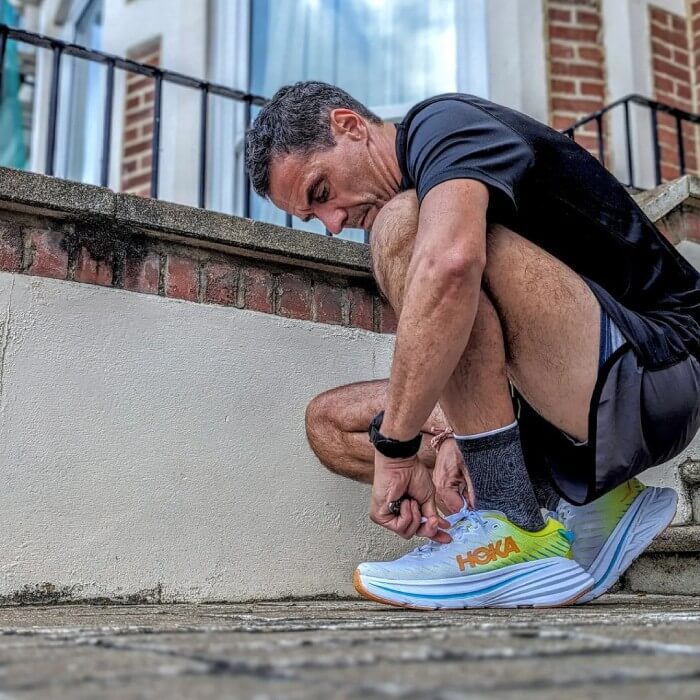
The upper part is made of engineered mesh, which is breathable and keeps your feet cool and dry. The tongue and collar have memory foam and mold to your foot shape. All of these features make the fit snug but flexible, which is exactly what you would want.
The Bondi 8 is eco-friendly because it uses recyclable materials in parts like the mesh and the sockliner. Plus, the shoes are completely vegan, which (if that’s important to you) is nice!
FAQ
Are beans good for endurance athletes?
Yes, beans are highly beneficial for endurance athletes. Bones are packed with proteins, fiber, vitamins, and other essential nutrients and provide valuable support for sustained energy and overall performance.
Are pinto beans good for runners?
Yes, like most beans, Pinto beans are low GI, meaning that they take longer to digest and supply energy for longer. They are also nutrient-rich, including carbohydrates, proteins, fiber, and other compounds like potassium, magnesium, folate, and vitamin B.
Summing Up the Benefits of Beans for Runners
Beans are an excellent food for runners. They are high in the necessary nutrients to sustain and provide runners with energy as they compete. As a low GI food, beans have different compositions depending on their type.
However, they are generally high in proteins and complex carbohydrates, which digest slower and provide a consistent and slow release of energy. If you use any of these energy beans for running, let us know how they work in the comment section below.
References:
- All About Beans Nutrition, Health Benefits, Preparation and Use in Menus // NDSU: https://www.ndsu.edu/agriculture/extension/publications/all-about-beans-nutrition-health-benefits-preparation-and-use-menus
- Carbohydrates and the glycaemic index // Better Health Channel: https://www.betterhealth.vic.gov.au/health/healthyliving/carbohydrates-and-the-glycaemic-index
- An update on magnesium and bone health // PMC: https://www.ncbi.nlm.nih.gov/pmc/articles/PMC8313472/
- Dietary phosphorus in bone health and quality of life // Oxford Academic: https://academic.oup.com/nutritionreviews/article/70/6/311/1846932
- Dietary potassium intake is beneficial to bone health in a low calcium intake population: the Korean National Health and Nutrition Examination Survey (KNHANES) (2008-2011) // PubMed: https://pubmed.ncbi.nlm.nih.gov/28093633/
- How to Reduce Antinutrients in Foods // Healthline: https://www.healthline.com/nutrition/how-to-reduce-antinutrients#TOC_TITLE_HDR_2
- Photos made by PDPics, Canva.
Why Trust Us?
With over 20 years in Olympic weightlifting, strength training, nutrition coaching, and general fitness our team does its best to provide the audience with ultimate support and meet the needs and requirements of advanced athletes and professional lifters, as well as people who strive to open new opportunities and develop their physical capabilities with us.
By trusting the recommendations of our certified experts in coaching, nutrition, and sports training programming, as well as scientific consultants, and physiotherapists, we provide you with thorough, well-considered, and scientifically proven content. All the information given in the articles concerning workout programming, separate exercises, and athletic performance, in general, is based on verified data.
The product testing process is described in more detail here.
Oleksandr is a running coach and member of the Nike Run Club coaching team for 8 years. A participant in national and international competitions at distances from one kilometer to the ultra trail. Owner of mountain trail running camps. Nowadays Oleksandr is responsible for creating running training programs for athletes of various levels, coaching personally offline and online, conducts trail running camps in the mountains, participates in competitions.



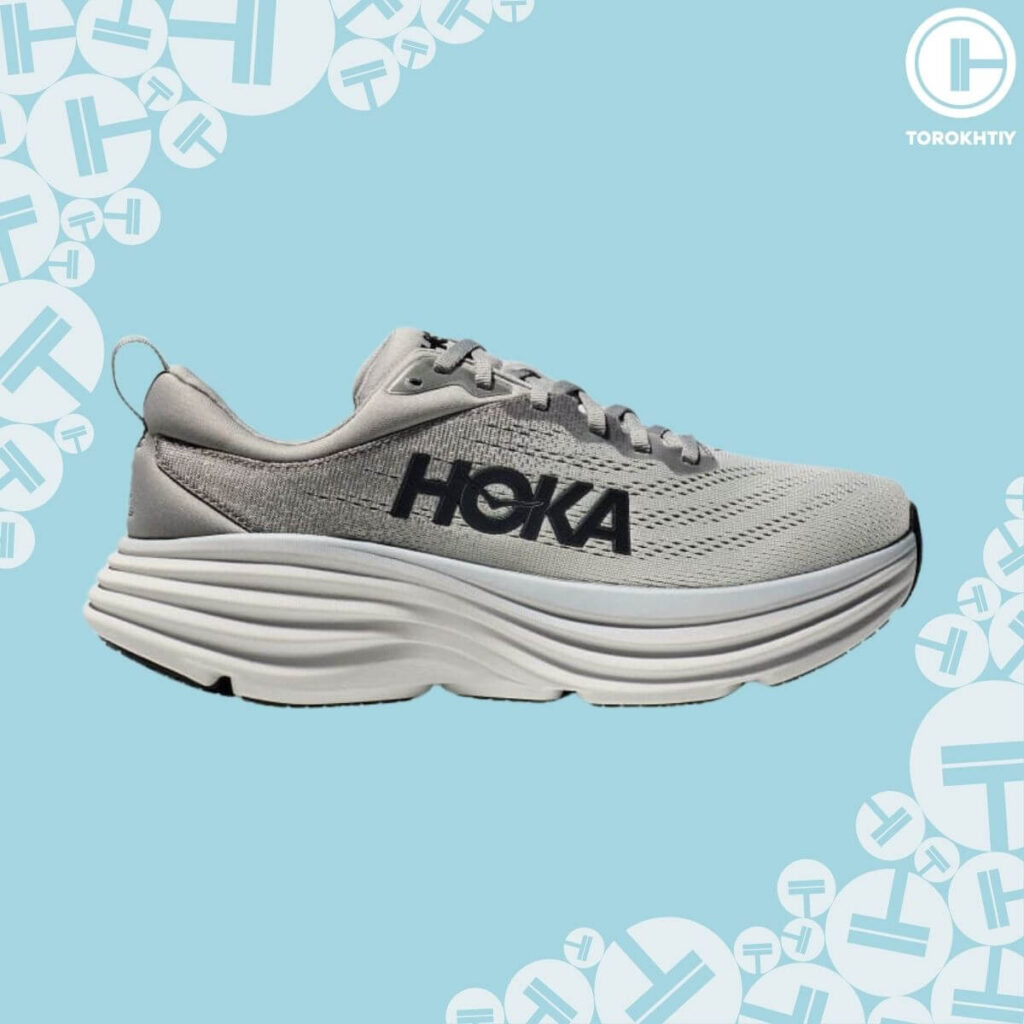
Still have questions after reading our article? Unlock your full potential by engaging with our experts and community! Don’t hesitate — leave a comment below and Oleksandr Zagrebelnyi will provide a personalized answer and insights to help you reach your goals.